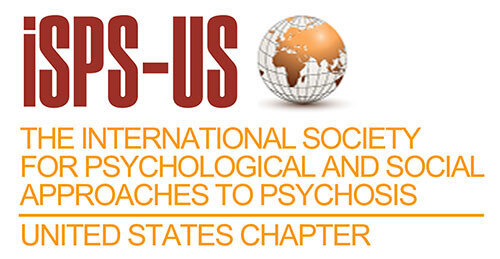Psychosis, Occupation, and the Human Experience: Exploring the Role of Activity, Engagement, and Meaning
Fall 2024 Workshop Series from ISPS-US and the American Association of Occupational Therapy (AOTA) - Community of Practice in Psychosis
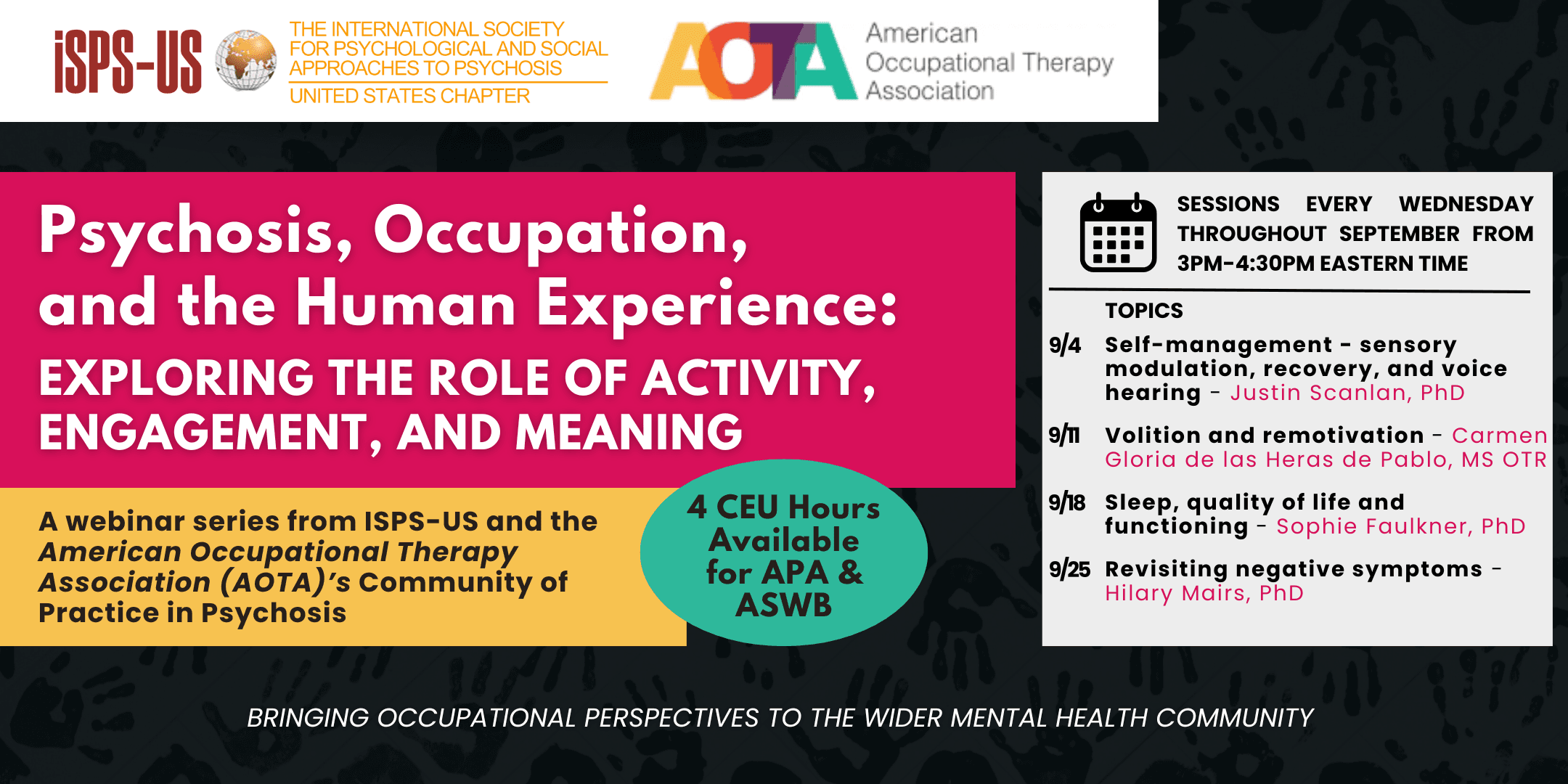
This 4-part series, taking place each Wednesday in September from 3-4:30pm, Eastern, delves into the intersection of psychosis and occupation—the activities we engage in daily that bring meaning, purpose, identity, and a sense of belonging. 4 CE hours are available for APA and ASWB boards to promote occupational perspectives in the wider mental health community.
This collaborative series, brought to you as a collaboration between ISPS-US and the American Occupational Therapy Association (AOTA)’s Community of Practice (CoP) in Psychosis, explores psychosis as a profound human experience with significant implications for engagement in meaningful activities and relationships. By adopting an occupational lens, we offer a critical perspective on psychosis, challenging the traditional biomedical model that views it solely or primarily as a medical disorder, separated from the activities of life, society, and systems.
Occupational therapists and occupational science scholars will present on various topics, including sensory processing, volition, sleep, and behavioral activation for “negative symptoms.” These discussions aim to bridge these concepts with the broader mental health community, providing a comprehensive understanding that extends beyond traditionally taught biopsychosocial perspectives.
The series is open to all, including psychologists, social workers, therapists, occupational therapists, peer specialists, individuals with lived experience, and family members.
Can't attend live? Don't worry, sessions will be recorded and sent to all registrants. However, live attendance is necessary for CE credit.
Full Series Registration (with course discount)
FULL COURSE REGISTRATION HAS NOW CLOSED.
Please sign up for the remaining individual sessions below.
Individual Session Registration (click session name)
- Wednesday, September 4th, 3pm-4:30 pm (ET) - Collaborative approaches to supporting self-management - Justin Scanlan, PhD (REGISTRATION CLOSED)
- Wednesday, September 11th 3pm-4:30pm (ET) Deciphering Volition: Progressive facilitation and impact on meaningful participation and lifestyle satisfaction - Carmen Gloria de las Heras de Pablo, MS, OTR (REGISTRATION CLOSED)
- Wednesday, September 18th, 2024 3pm-4:30pm (ET) Assessment and treatment of sleep and circadian rhythm problems in psychosis to enhance quality of life and functioning: from an occupational perspective - Sophie Faulkner, PhD (REGISTRATION CLOSED)
- Wednesday, September 25th, 2024 3pm-4:30pm (ET) Revisiting Negative Symptoms: Working with reduced expression and motivation in psychosis - Hilary Mairs, PhD (REGISTRATION CLOSED)
Session Details
-
 Wednesday, September 4th, 3pm-4:30pm (ET) - Collaborative approaches to supporting self-management - Justin Scanlan, PhD
Wednesday, September 4th, 3pm-4:30pm (ET) - Collaborative approaches to supporting self-management - Justin Scanlan, PhDA key skill of mental health practitioners is supporting individuals to develop and implement self-management strategies that help to overcome or address barriers to participation in valued life roles and meaningful activities. Working in collaborative person-centred and person-directed ways, practitioners can assist individuals experiencing psychosis to identify potential barriers and strategies that might be suitable to overcome these. This webinar will focus on three tools that can be used to support individuals to explore and implement personally-relevant self-management strategies. These tools include: sensory modulation strategies, using measures of mental health recovery to track progress and identify areas for growth, and tools to collaboratively explore and understand voice-hearing experiences.
By the end of this webinar, participants will:
Understand how occupational therapists (and others) can work with individuals to enhance self-management strategies focused on overcoming barriers to meaningful participation in meaningful life activities.
Develop awareness of three approaches to supporting self-management.
Consider and develop approaches to collaborative working that will support the person to take charge of their own recovery journey.Presenter Bio
Associate Professor Justin Scanlan is an occupational therapist and mental health researcher and academic. He is employed at the University of Sydney and is a member of the Centre for Disability Research and Policy. His research is focused on recovery-oriented practice, wellbeing of the mental health workforce and innovative approaches to service delivery in mental health service. He is well-known for his research exploring job satisfaction and burnout in the mental health workforce and his work exploring the use of sensory modulation interventions to support self-regulation and as a key component of efforts to reduce the use of seclusion and restraint. Associate Professor Scanlan has collaborated with Associate Professor Hancock for the past decade on the psychometric testing and further development of the Recovery Assessment Scale – Domains and Stages. He is also recognised for his work in supporting embedding lived experience expertise into teaching and research. He has published 90 peer reviewed articles and his work has been cited over 2,900 times. Prior to entering academia, Justin was Head of Occupational Therapy in a large public mental health service in Sydney. -
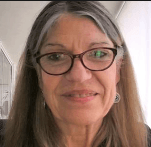 Wednesday, September 11th 3pm-4:30pm (ET) Deciphering Volition: Progressive facilitation and impact on meaningful participation and lifestyle satisfaction - Carmen Gloria de las Heras de Pablo, MS, OTR
Wednesday, September 11th 3pm-4:30pm (ET) Deciphering Volition: Progressive facilitation and impact on meaningful participation and lifestyle satisfaction - Carmen Gloria de las Heras de Pablo, MS, OTRThis presentation integrates the concepts of volition and its process, the relationship with other personal and environmental aspects that influence its development, its impact on the lived experience of persons with psychosis and on their participation in daily lives, their families and significant others. Within the approaches that collaborate on promoting and enriching this delicate and critical aspect of human life, this presentation will emphasize the Remotivation Process (RP), a client centered Model of Human Occupation systematized intervention that is used with people who experience volitional challenges that inhibits or restricts their participation in occupation, in order to progressively facilitates volition according to a person´s unique motivational conditions. The application of the RP in a variety of settings and with diverse groups of clients around the world, including people who have psychosis-related conditions, has been very successful on enhancing self-determination, occupational participation, occupational identity and competence of everybody involved: clients, families, significant social groups, professionals and other people involved as part of the team. The impact of the Remotivation Process will be illustrated by its use with 400 people who went through their recovery process at a Community Integration Center in Santiago, Chile “Reencuentros”, showing evidence of its impact on people´s occupational participation in contexts of their choice and their personal meaning.
By the end of the presentation, participants will be able to:
-Identify the concepts of volition, the volitional process, and the personal and environmental factors that promote or inhibit it.
-Describe the principles and main aspects to consider when using the Remotivation Process by recalling the feelings and thoughts of experiencing their own life in progress and practice with people who have psychosis-related conditions.
- Discuss the skills that can contribute to progressively facilitating motivation and engagement.Speaker Bio
Occupational Therapist graduated from the University of Chile, earning her Master in Science in Occupational Therapy from Tufts University, Boston, USA. She is an international consultant and professor of the Model of Human Occupation (MOHO) and Occupational Therapy, MOHO’s Educational Authority in Latin America and Spain, and Director of the Ibero-American Community of MOHO. Within her 43 years of professional experience, Carmen Gloria has worked as an occupational therapist practitioner with people who go through mental illness problems in different contexts of OT practice, director of Occupational Therapy programs, Undergraduate and Postgraduate professor, and international thesis supervisor and consultant. Since 1985 he has been a member of the international team of research and development of the MOHO, contributing until today with the development of integration of theory and practice, systematization of intervention process, and program development. She is the first author of the Volitional Questionnaire (observational tool of volition) and the Remotivation Process. Her work has been published in books, articles and manuals in different languages. -
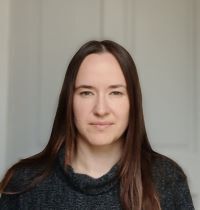 Wednesday, September 18th, 2024 3pm-4:30pm (ET) Assessment and treatment of sleep and circadian rhythm problems in psychosis to enhance quality of life and functioning: from an occupational perspective - Sophie Faulkner, PhD
Wednesday, September 18th, 2024 3pm-4:30pm (ET) Assessment and treatment of sleep and circadian rhythm problems in psychosis to enhance quality of life and functioning: from an occupational perspective - Sophie Faulkner, PhDThis talk will introduce the main types of sleep and circadian rhythm problems experienced by people with psychosis, discussing prevalence, and their impact. Different methods of assessing sleep and circadian rhythm will be described, prompting attendees to consider what assessment elements are feasible to utilise in their setting, the different possible purposes of a sleep assessment, and levels of detail required for these.
It is not just relevant to assess and consider sleep when delivering a sleep-specific intervention, so we will spend some time examining how sleep and sleep patterns interact with the person, occupational routine, and environment, and occupational interventions which might be focused on different occupational or personal goals. Examples of how to make a sleep and circadian rhythm informed intervention assessment and intervention plan will be considered, as well as possible pitfalls. The current evidence base for sleep and circadian rhythm interventions will be summarised, with a focus on environmental and behavioural interventions. I will focus on interventions that can safely be delivered without extensive further training, describe which interventions have more potential to do harm when delivered inappropriately (e.g. wrong person, wrong method, insufficient time to deliver or supervise), and give an overview of specialist interventions.
By the end of the presentation participants will be able to:
- Describe the different types of sleep and circadian rhythm problems experienced by people with psychosis, and how to assess sleep.
- Discuss how personal factors, environment, and occupational routines, can all interact positively or negatively with sleep and circadian functioning.
- Identify evidence based sleep and circadian rhythm interventions and advice safe for provision by non-sleep specialists, and have an awareness of specialist sleep interventions to refer for or consider further training in.Presenter Bio
Dr Sophie Faulkner completed a PhD at the University of Manchester funded by a National Institute of Health Research (NIHR) / Health Education England (HEE) Clinical Doctoral Research Fellowship, completing in 2022. Dr Faulkner continues to work on research related to sleep, circadian rhythm and mental health with University of Manchester researchers in Centre for New Treatments and Understanding in Mental Health (CeNTrUM) and Centre for Biological Timing (CfBT). -
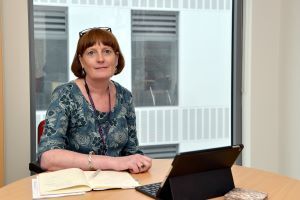 Wednesday, September 25th, 2024 3pm-4:30pm (ET) Revisiting Negative Symptoms: Working with reduced expression and motivation in psychosis - Hilary Mairs, PhD
Wednesday, September 25th, 2024 3pm-4:30pm (ET) Revisiting Negative Symptoms: Working with reduced expression and motivation in psychosis - Hilary Mairs, PhDThis talk explores the premise that that there are several explanations to account for the limited emotional expression and activity that can be observed in psychosis, and that the idea that they constitute negative symptoms of psychosis is only one way of thinking about these experiences. Other explanations, including those offered by those with lived experience, will be considered. Optimal methods for engaging people with reduced expressivity and motivation in positive therapeutic alliances and a number of structured psychosocial interventions that may address these problems will be highlighted. The latter will include strategies to support families cope with and mental health practitioners understand restricted expression and activity.
By the end of the presentation participants will be able to:
- Discuss a number of different biological, psychological and social theories of reduced expression and activity in psychosis
- Analyze optimal strategies to engage this client group in positive therapeutic alliances and structured psychosocial treatment approaches
- Reflect on their practice with this client group and expand the number of treatment choices they can offer.Presenter Bio
Professor Hilary Mairs is an Occupational Therapist and currently the Head of Nursing, Midwifery and Social Work and Deputy Head of the School of Health Sciences at the University of Manchester. Her clinical experience, teaching and scholarship have focused on individual and family psychosocial interventions for psychosis. She has published several papers, a book (published in English and Italian) and facilitated workshops in Europe and the Far East relating to interventions to address the negative symptoms of psychosis. She has also worked with service user and carer networks to co-produce educational materials about hearing voices and reviews of specific educational strategies to enhance student and healthcare professional understanding of these experiences.
